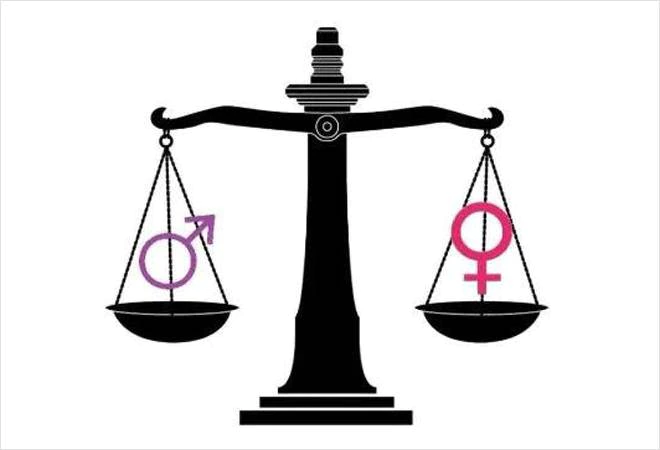While Pakistan is now pellucidly clear and relatively progressive than other Muslim states in its stance about women’s rights, a large segment of women are still deprived of their rights of inheritance. The laws of Pakistan do assure women some protection; for instance, Article 23 of the Constitution guarantees the right to own property for every man and woman in the country. It is backed up by a long legal tradition of protecting women’s property rights in Pakistan, beginning with the Married Women’s Property Act of 1874 and the Dissolution of Muslim Marriages Act of 1939 under the British Raj, and going on after independence with the Muslim Family Laws Ordinance 1961, the West Pakistan Muslim Personal Law Shariat Application Act 1962, and the Prevention of Anti-Women Practices Act 2011. Furthermore, the most recent bill passed in this regard, the Enforcement of Women’s Property Rights (Amendment) Bill 2021, seeks to ensure that the right of women to own and possess property is not violated by means of harassment, coercion, force, or fraud. Meanwhile, under the Prevention of Anti-Women Practices Act 2011, denying women their inherited property through ‘deceitful or illegal means’ is punishable with imprisonment of up to 10 years, but no less than five, and/or a fine of Rs1 million.
In spite of these above-mentioned irrevocable steps taken to ensure the provision of the rights of inheritance of women, still, 97 percent of women [across Pakistan] did not inherit land or a house. While 1pc each inherited agricultural land and a house, less than 1pc of women inherited non-agricultural plots or residential plots. (Demographic and Health Survey 2017-18) Pihlwan’s daughter Zahra Banu is a case in point. In 2017, when Pihlwan Baig transferred his land to his six children, dividing it among his four daughters and two sons. However, after his demise in January 2020 his sons decided to claim the entirety of Pihlwan’s property — even if they had to resort to violence to do so. In an FIR registered in November 2021, Pihlwan’s daughter Zahra Banu explained how her brothers tried to force her to sign a piece of stamp paper. When she hesitated, they physically attacked her. And, when her husband came home and intervened, they left him and Banu’s 11-year-old son black and blue too. Moreover, Shabana Khan and her two sisters too had filed a suit in 2021 after three of their brothers deprived them of a share of their father’s property. Presenting a falsified power of attorney in court in 2000, their brothers had been able to occupy hundreds of kanals of their late father’s land, leaving Shabana and her sisters with no recourse but a court case and a complaint lodged against the local revenue department. Shabana Khan, Zahra Banu are only two of a multitude of women struggling to lay claim to their rightful inheritance in the country.
Khan Bahadur, a lawyer at the Peshawar High Court’s Swat bench, estimates that 80 percent of the inheritance cases he has taken on in the past have ended with the parties patching up the dispute themselves. “You see, women usually do not want to ruin their relationship with their brothers,” he rationalizes. Plus, he further stated that society considers it disgraceful for women to appear in court. He also regretfully added, “In most cases, fathers just bequeath their property to their sons. These old customs are still followed in our region, denying women their rights. Brothers press their sisters not to ask for their share and fathers fear their daughters will take the property to another family [when they marry].”
Although it is clearly asserted in the laws of Pakistan and Islamic jurisprudence that providing women their rightful assets is mandatory, passing inheritance down through the men of the family is a tale as old as time, and old habits die hard. There is a vast disconnect between the laws and the ground reality which happens in the name of culture and tradition. Those connected with the grassroots of Pakistan and the lived experiences of the women – and not only among the lower socioeconomic classes-know how often men subject their mothers, sisters, and daughters to emotional blackmail, and worse, and compel them to forgo their share of the inheritance. Sometimes the ugly reality behind closed doors emerges in the public domain. Not long ago a video from Peshawar surfaced on social media where male relatives were beating a woman barbarically just for demanding her right. For countless such women, the state must send an unequivocal message that women’s right to inheritance isn’t a luxury conferred by men, but a fundamental right.
In addition to this, stern measures should be taken against those men who fill their stomachs with the properties of their females silencing them in the name of customs and traditions. Legislations should require a comprehensive review of all formal and customary laws to ensure women have access to their rights. Laws should explicitly allow females to inherit property and should mandate that customary systems grant women their fair share. Legislations should create and support enforcement and monitoring mechanisms such as a police unit, to facilitate women’s inheritance claims. Legislations should also include awareness programs aimed at educating rural and urban women on their rights, remedies, and how to enforce them. Furthermore, legislation should require studies on inheritance laws and practices throughout the country to understand the nature and extent of discrimination against women in property rights.
“True peace isn’t merely the absence of tension: it is the presence of justice.”, Sir Martin Luther King once remarked. Denying and delaying the fundamental rights of half of the population of the country can seriously impede the advancement of the country. Moreover, denying and delaying the rights of women is pushing the generations of women to come into darkness and inequity. Also, it can seriously stain the image of the Islamic Republic of Pakistan.
